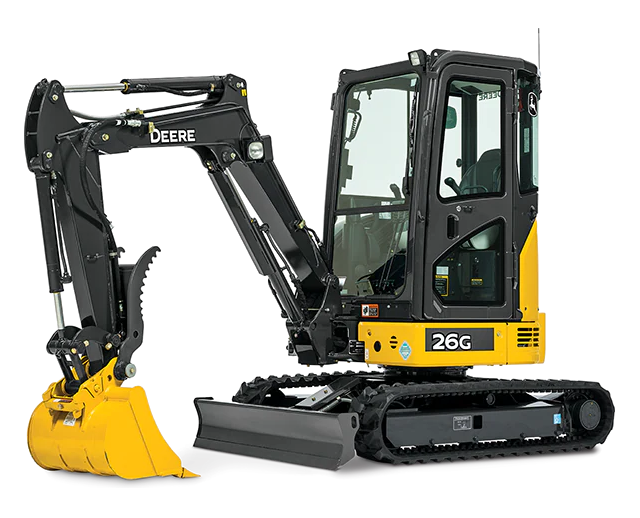Optimize Your Budget by Comprehending the Costs Related To Building And Construction Tools Leasings
Recognizing the full scope of expenses related to building equipment rentals is important for maximizing your budget plan. While the preliminary rental fee may appear straightforward, various additional costs-- such as transport, gas additional charges, and maintenance-- can promptly gather, affecting your economic preparation. Furthermore, being conscious of numerous costs and the ins and outs of rental agreements can aid avoid unexpected financial problems. What approaches can be employed to successfully manage these prices and guarantee a more efficient rental experience?
Introduction of Rental Costs
When thinking about building equipment leasings, comprehending the associated prices is critical for effective budgeting and project planning. Rental expenses can differ substantially based on several variables, including equipment type, duration of rental, and location. The preliminary rental cost usually reflects the devices's market demand and its linked operational capacities, affecting the general cost.
In addition to the base rental price, ancillary expenses might arise, such as transportation fees, fuel additional charges, and upkeep charges. It is vital to account for these additional expenses to accurately examine the total price of leasing equipment. The rental duration can influence rates; longer rentals may qualify for reduced prices, while temporary services might sustain greater day-to-day costs.

Breakdown of Rental Prices
A comprehensive understanding of rental rates is important for professionals and project managers intending to enhance their budget plans. Rental prices for building equipment commonly are composed of a number of components, including base rates, time-based costs, and use charges.
Base rates are the core costs linked with the service of the devices, typically determined by the type and dimension of the equipment. These rates can vary substantially, affected by aspects such as equipment need, schedule, and regional market patterns. Time-based fees, which may be daily, weekly, or monthly, offer to accommodate different task timelines and rental periods.
Additionally, rental prices may consist of use fees, which apply when tools is used beyond a defined limit, making certain that the rental business can make up deterioration. Seasonal need changes can also affect rental prices, with peak construction periods generally regulating greater prices.
In addition, comprehending the rental firm's policies relating to maintenance and insurance policy can offer more insight right into the total cost structure. By analyzing these parts, specialists can make informed decisions, making certain the choice of rental tools lines up with both job needs and budget restrictions.
Additional Costs to Consider
Understanding the complexities of extra charges is vital for contractors to manage their overall rental expenses efficiently. Beyond the conventional rental prices, different auxiliary costs can significantly influence the overall cost of equipment rental. These costs often consist of distribution and pickup costs, which can differ based upon range and logistics associated with delivering the devices to and from the task site.
Moreover, some rental companies might enforce fuel surcharges if the equipment is returned with less gas than when leased. It is likewise necessary to recognize possible cleaning costs, especially for specialized tools that calls for comprehensive upkeep after use.

Thoroughly page evaluating the rental contract and making company website clear these extra fees ahead of time can assist contractors make sure and avoid unanticipated costs that budgets continue to be undamaged throughout the project lifecycle.
Upkeep and Repair Expenditures
Regular repair and maintenance expenses are usually ignored factors that can substantially affect the total cost of construction devices services. When renting devices, it is crucial to take into consideration not only the rental charges but also the prospective prices associated with maintaining the equipment in optimal operating condition.
Several rental companies include standard maintenance as part of the rental arrangement; however, much more unexpected break downs or considerable repairs can result in extra expenditures. It's necessary to assess the rental contract thoroughly to comprehend what upkeep solutions are covered and what obligations fall on the renter.
Moreover, devices that is not properly maintained can cause inefficiencies on duty site, potentially triggering delays and enhancing task prices. To minimize these threats, it is suggested to conduct regular examinations and maintain open interaction with the rental service provider concerning any issues that occur during usage.
Insurance and Responsibility Prices
Insurance coverage and obligation expenses are crucial components that can dramatically influence the total cost of building equipment services (aerial lift rental). These costs ensure that both the rental firm and the client are protected from possible monetary losses occurring from accidents, damages, or theft during the rental duration

Furthermore, customers ought to recognize any deductibles or exemptions in the insurance plan, as these can affect prospective out-of-pocket expenditures. Understanding the conditions of any insurance coverage is essential to avoid unanticipated costs. Eventually, budgeting for insurance policy and responsibility costs can help make sure a smoother rental experience and shield against monetary dangers linked with building and construction jobs.
Verdict
In final thought, an extensive understanding of the costs connected with building and construction devices rentals is crucial for effective budget administration. Eventually, notified decision-making concerning tools services contributes to the overall success of building and construction undertakings.
Rental prices can vary significantly based on numerous aspects, including tools type, duration of service, and place (rental company near me). The rental period can influence prices; longer rentals might certify for discounted prices, while short-term services might sustain higher daily fees
By conducting thorough research study and engaging with trustworthy rental business, contractors can successfully navigate the complexities of rental rates, eventually optimizing their financial sources.
Beyond the common rental rates, different supplementary fees can dramatically affect the total price of devices leasing. Rental firms commonly supply responsibility insurance that covers injuries to 3rd events or damage to residential property, while equipment damages insurance can cover the cost of repair work or replacement if the leased devices is damaged.